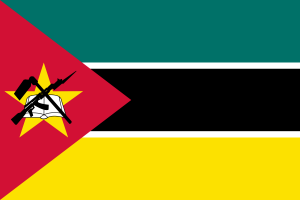Mozambique: Upgrading of the Milange-Mocuba Road

project description
The European Union allocated funds to the action “Upgrading of the Milange-Mocuba Road Phase – Phase I and II” for renovation, reconstruction and rehabilitation of 189km of roads and other infrastructure in the Zambézia province from September 2010 to October 2019. We provided an overall independent assessment of the past performance of the programme and lessons learned to improve current and future actions. In particular, the evaluation served to understand the cause and effect links between inputs and activities, and outputs, outcomes and impacts. An emphasis was placed on results-oriented approaches and the contribution towards the implementation of the SDGs.
The assessment was conducted according to the five standard criteria of the Development Assistance Committee (DAC) of the OECD: relevance, effectiveness, efficiency, sustainability and early signs of impact. The following specific issues were addressed within the judgement criteria and indicators:
- To what extent, how and why did the programme affect positively or negatively the local agricultural, trade and transport sectors?
- To what extent, how and why did the programme affect positively or negatively the environment?
- How did the programme contribute directly or indirectly to create job opportunities?
- To what extent did the upgraded roads serve the programme purpose with respect to travel time, cost of transit freight and passenger service, road safety and accessibility?
- To what extent were the road works cost-effective and sustainable?
- Have there been any negative social impacts?
The final analysis results and recommendations were recorded in a report to the EU. Furthermore, we validated and shared the results in a presentation to the EUD in Mozambique.
services provided
- Conducted stakeholder mapping and background analysis
- Designed the methodology for the evaluation, including evaluation matrix, consultation strategy and field visit approach
- Analysed risks related to the evaluation methodology and mitigation measures
- Conducted a field mission to gather primary evidence and complete evaluation techniques such as cost-effectiveness analysis, quantitative analysis of travel time and costs, road safety blackspots profiling, and quantitative analysis of job creation
- Analysed data to provide formulation of an overall assessment, conclusions and recommendations


